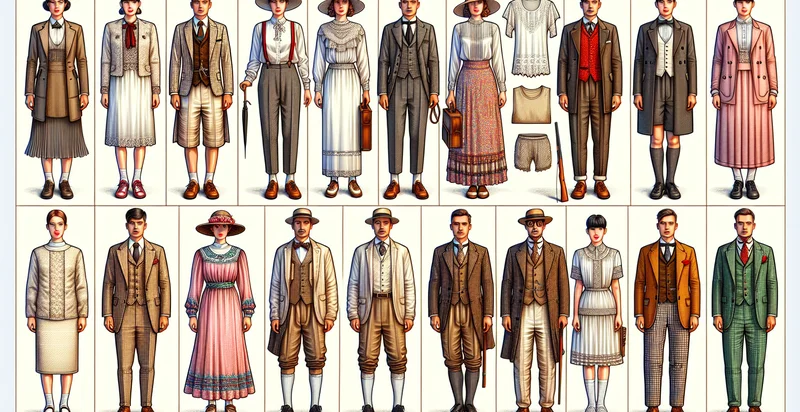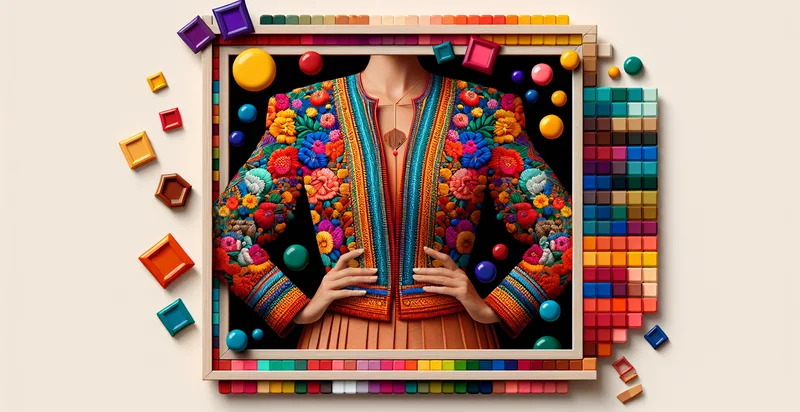Identify outfits
using AI
Below is a free classifier to identify outfits. Just upload your image, and our AI will predict what type of outfit it is - in just seconds.

Contact us for API access
Or, use Nyckel to build highly-accurate custom classifiers in just minutes. No PhD required.
Get started
import nyckel
credentials = nyckel.Credentials("YOUR_CLIENT_ID", "YOUR_CLIENT_SECRET")
nyckel.invoke("outfits", "your_image_url", credentials)
fetch('https://www.nyckel.com/v1/functions/outfits/invoke', {
method: 'POST',
headers: {
'Authorization': 'Bearer ' + 'YOUR_BEARER_TOKEN',
'Content-Type': 'application/json',
},
body: JSON.stringify(
{"data": "your_image_url"}
)
})
.then(response => response.json())
.then(data => console.log(data));
curl -X POST \
-H "Content-Type: application/json" \
-H "Authorization: Bearer YOUR_BEARER_TOKEN" \
-d '{"data": "your_image_url"}' \
https://www.nyckel.com/v1/functions/outfits/invoke
How this classifier works
To start, upload your image. Our AI tool will then predict what type of outfit it is.
This pretrained image model uses a Nyckel-created dataset and has 25 labels, including casual and formal.
We'll also show a confidence score (the higher the number, the more confident the AI model is around what type of outfit it is).
Whether you're just curious or building outfits detection into your application, we hope our classifier proves helpful.
Related Classifiers
Need to identify outfits at scale?
Get API or Zapier access to this classifier for free. It's perfect for:
- Virtual Stylist: An AI-driven fashion platform can incorporate the outfit types identifier to recommend personalized outfits to users based on their preferences. By accurately identifying various outfit styles, the system ensures users receive tailored suggestions that match their individual tastes and occasions.
- E-commerce Product Tagging: Online retailers can utilize the outfit type identifier to automatically categorize and tag their clothing inventory. This will enhance product discoverability, improve user experience through refined search filters, and ultimately boost sales by presenting customers with relevant options.
- Social Media Fashion Analytics: Fashion influencers and brands can leverage this function to analyze trending outfit types on social media platforms. By identifying popular styles, they can make informed marketing and inventory decisions, capitalizing on what resonates with audiences.
- Personalized Marketing Campaigns: Businesses can utilize the outfit types identifier to segment their audience based on style preferences. This allows for the development of targeted email campaigns and advertisements that directly align with customers' tastes, increasing engagement and conversion rates.
- Style Evolution Tracker: Fashion brands can implement this identifier in their apps to help customers track their personal style evolution over time. By analyzing outfit choices and preferences, brands can provide insights and suggest new styles that align with the user’s progression and changing tastes.
- Outfit Recommendation for Events: Event organizers can use the outfit types identifier to suggest suitable attire for upcoming events when users register. This feature can enhance user experience by providing attendees with guidelines on appropriate dress codes, boosting satisfaction and attendance.
- Wardrobe Management Tool: This function can be integrated into wardrobe management apps to help users catalog their clothing items by outfit type. By providing suggestions for outfits for various occasions, users can optimize their wardrobe usage, reduce decision fatigue, and promote sustainable consumption habits.


